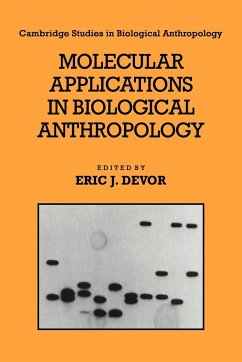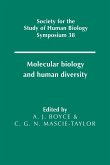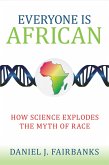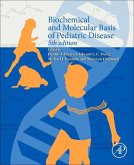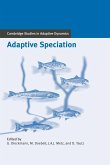This volume presents the findings of a selection of pioneering research studies in which new molecular techniques have been used to address key questions in biological anthropology.
The recent revolution in molecular genetics, which has already made such a significant impact in the biomedical sciences, is now becoming established in biological anthropology. New techniques have enabled anthropologists to study biological variation at the molecular level, and a wealth of exciting information on human and non-human primate populations is now becoming available for the first time. This volume presents a selection of pioneering research studies in which molecular techniques have been used to address key questions, for example about the human genetic system, the geographical movements of human populations in the past, and primate evolution. Providing not only a timely overview of current research, this book also presents an insight into the potential significance of molecular biology in the decades to come, that will be of interest to all biological anthropologists as well as molecular biologists, human geneticists, palaeontologists and evolutionary biologists.
Table of content:
List of contributors; Preface; 1. Introduction: a brief history of the RFLP E. J. Devor; 2. Nuclear DNA polymorphisms as tools in biological anthropology J. Rogers; 3. Molecular genetics of atherosclerosis in human and non-human primates J. E. Hixson; 4. Hypervariable minisatellites and VNTRs M. L. Weiss and T. Turner; 5. Molecular genetics of globin genes and human population studies J. Flint, J. B. Clegg and A. J. Boyce; 6. Mitochondrial DNA: its uses in anthropological research D. J. Melnick, G. A. Hoelzer and R. L. Honeycutt; 7. Beads and string: the genome in evolutionary theory J. Marks.
Hinweis: Dieser Artikel kann nur an eine deutsche Lieferadresse ausgeliefert werden.
The recent revolution in molecular genetics, which has already made such a significant impact in the biomedical sciences, is now becoming established in biological anthropology. New techniques have enabled anthropologists to study biological variation at the molecular level, and a wealth of exciting information on human and non-human primate populations is now becoming available for the first time. This volume presents a selection of pioneering research studies in which molecular techniques have been used to address key questions, for example about the human genetic system, the geographical movements of human populations in the past, and primate evolution. Providing not only a timely overview of current research, this book also presents an insight into the potential significance of molecular biology in the decades to come, that will be of interest to all biological anthropologists as well as molecular biologists, human geneticists, palaeontologists and evolutionary biologists.
Table of content:
List of contributors; Preface; 1. Introduction: a brief history of the RFLP E. J. Devor; 2. Nuclear DNA polymorphisms as tools in biological anthropology J. Rogers; 3. Molecular genetics of atherosclerosis in human and non-human primates J. E. Hixson; 4. Hypervariable minisatellites and VNTRs M. L. Weiss and T. Turner; 5. Molecular genetics of globin genes and human population studies J. Flint, J. B. Clegg and A. J. Boyce; 6. Mitochondrial DNA: its uses in anthropological research D. J. Melnick, G. A. Hoelzer and R. L. Honeycutt; 7. Beads and string: the genome in evolutionary theory J. Marks.
Hinweis: Dieser Artikel kann nur an eine deutsche Lieferadresse ausgeliefert werden.

